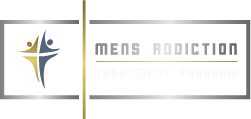Addiction affects people from all walks of life daily across the United States. For loved one’s members, it’s hard to know how to provide nonjudgemental support during addiction treatment. It can be challenging for those in an addiction rehab program to self-advocate, ask loved ones for help, and make amends to heal family wounds. If you’re looking to support someone through addiction treatment, talking with a rehab center is one of the first steps to understanding addiction and supporting someone through addiction treatment.
If you have a loved one struggling with addiction, know you are not alone. There are addiction treatment programs ready to support you and your loved one, from substance use to mental health and addiction treatment. Seek the support you need today to help your loved one recover. After all, supporting someone through substance abuse treatment can give your loved one the strength to make the positive changes they need. Drug addiction treatment plans can include medication-assisted treatment, counseling, support groups, and more—all essential resources to help a person and their families to better understand and cope with addiction.
What Are the Signs of Addiction?
Knowing the signs of addiction can help you understand when to help a loved one seek an addiction rehab program. Addiction happens when the brain becomes dependent on a substance for certain chemical processes. It’s important to remember that addiction is treatable and is often caused by unprocessed trauma, a lack of mental health resources and education, undiagnosed mood disorders, and prolonged stress. Today’s busy world can lead many people to struggle with mental health, trauma, and addiction. Whether someone is taking medication as prescribed or abusing drugs, their brain can quickly develop dependency. Addiction signs include:
- Mood swings
- Erratic behavior
- Anger
- Anxiety
- Depression
- Changes in work or school performance
- Physical signs like track marks, red eyes, damaged nasal passages
- Changes in weight
- Changes in eating habits
- Confusion
- Paranoia
- Panic attacks
- Acting intoxicated
- Increased drinking
- Trouble sleeping
- Increased fatigue
- Manic behavior
- Changes in social groups
- Lack of interest in favorite activities
- Self-isolation
- Secretive behavior
- Self-harm
Substances are considered stimulants or depressants. Stimulants speed up the nervous system, while depressants slow it down. When someone takes stimulants, they will go from a hyper state to a depressed state when a drug wears off. When someone takes depressants, their depression and mood can worsen. Many use drugs and alcohol to self-medicate for trauma and mental health. While substances can temporarily relieve symptoms of depression, bipolar disorder, and anxiety, symptoms return and worsen when a drug wears off.
Supporting Someone Through Addiction Treatment
Recognizing a loved one’s addiction isn’t always easy. Contrary to popular belief, people often maintain relatively normal lives while addicted to drugs and alcohol. If you suspect your loved one is using drugs or alcohol to self-medicate, it’s time to seek drug addiction treatment. While it’s hard to know what a loved one needs, it’s essential to support them by:
- Cultivating a safe, drug-free home
- Supporting sober hobbies and activities, you can do together
- Staying curious about your loved one’s experience
- Avoiding judgmental language
- Attending family therapy
- Supporting yourself through diet, therapy, and personal wellness
- Holding your loved one accountable, even when it’s hard
- Educating yourself on drug abuse, mental health, and signs of relapse
To support a loved one through addiction treatment, you must support yourself. This includes establishing healthy boundaries, indulging in self-care, and meeting your needs to be there for your loved one. Working with an individual therapist and learning more about how mental health, trauma, and your relationship affect addiction can help you better understand your loved one’s experience. Understanding is often the first way you can show up for your loved one throughout every stage of treatment.
Find an Addiction Rehab Center Today
If your loved one is struggling, call an addiction treatment center. Treatment programs across the state are ready to help clients and their loved ones recover. Check state and federal directories to find a reputable drug treatment center. Never trust a center that offers “quick fixes” or lacks licensed therapists.
Check with your loved one’s insurance company to find accessible treatment options near you today. Don’t wait. Help someone you love recover now. Supporting someone through addiction treatment is vital in helping them get better. Showing support encourages them to stay in treatment and work hard to overcome obstacles.

